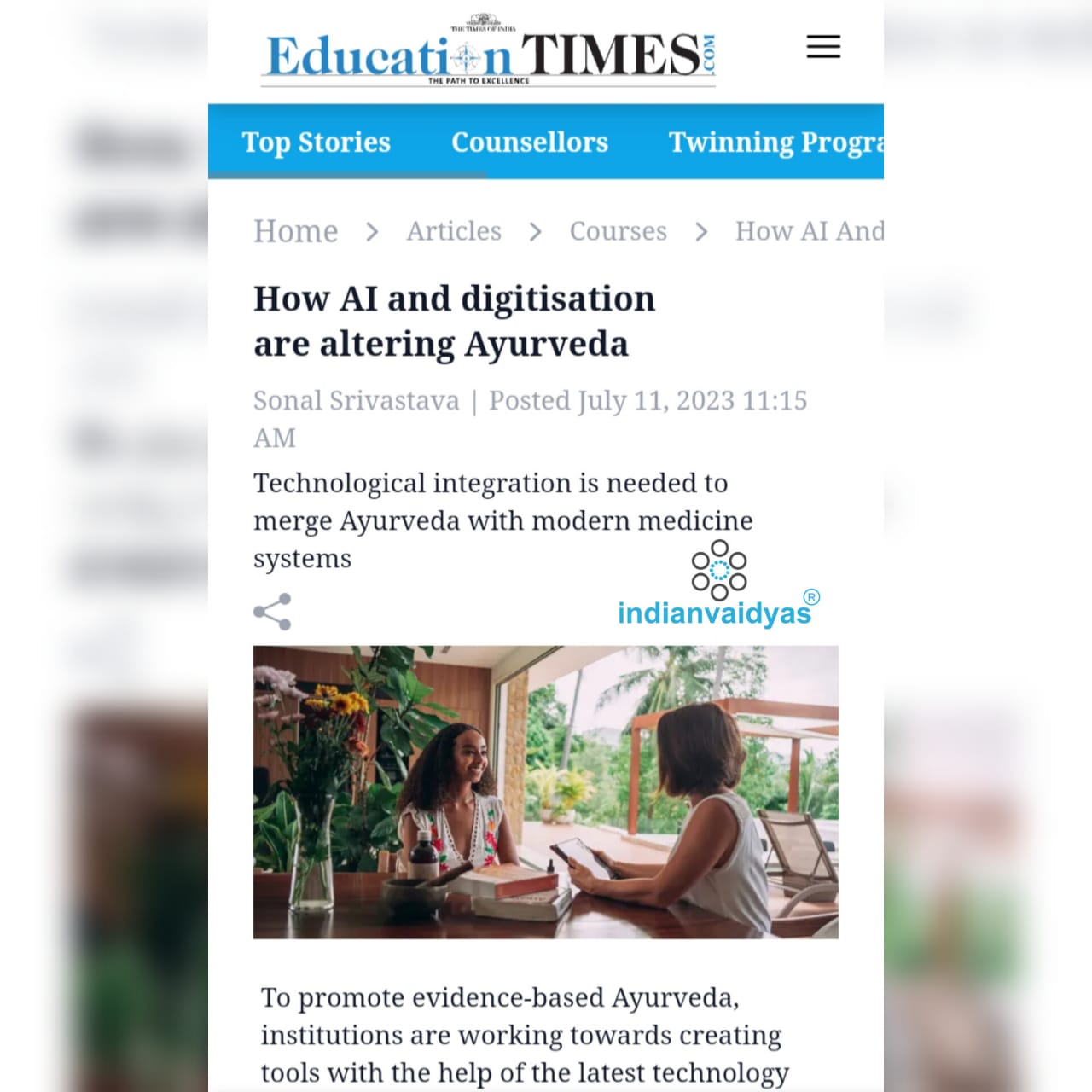How AI and digitisation are altering Ayurveda
13-Jul-23 04:46:38

Technological integration is needed to merge Ayurveda with modern medicine systems
To promote evidence-based Ayurveda, institutions are working towards creating tools with the help of the latest technology including Artificial Intelligence (AI) to enhance the objectivity of traditional medicine and create a disciplinary model for better integration with other medical systems.
IIT Jodhpur recently inaugurated AyurTech, the Center of Excellence (CoE) that is part of the Centre of Excellence in Artificial Intelligence (AI) based Precision Healthcare at the School of Artificial Intelligence and Data Science (AIDE), IIT Jodhpur. AyurTech aims to promote an AI-driven integrative framework and to develop early actionable precision health interventions. The Centre for AyurTech will combine electronics, digital health, and AI technologies for realising ‘evidence-based Ayurveda’ solutions in a transdisciplinary framework. It will enable capacity building in different domains of Ayurveda, increase employability in transdisciplinary domains, provide innovation and entrepreneurship opportunities and help in transdisciplinary research programmes.
Evidence-based usage
Talking about the integration of Ayurveda and technology, Mitali Mukerji, professor and head, Department of Bioscience and Bioengineering, who is coordinating the project tells Education Times, “Ayurveda has been practised for thousands of years and to integrate it with modern medicine systems, we need to have more technological developments around it. There is also a need for objectivity to use the wisdom of Ayurveda in assessing prakriti, capturing the same kind of phenotypes through computer vision and using AI to identify prakriti in clinical settings. A molecular understanding of ayurvedic medicine is important to promote evidence-based usage of medicines. Methods such as nanotechnology, genomics platform and even model systems can be used to analyse the working of Ayurvedic medicine.” AyurTech is finding out the technologies to bring in objectivity and understanding of the basic mechanistic way in which ayurvedic treatments/medicines.
People talk about integrated medicine where Ayurveda and other systems cross turf with modern medicine for a patient. "But there is little scientific evidence of its potency. “Hence, developing a platform that can provide solutions," adds Mukerji. AyurTech will be researching and developing digital devices integrated with IoT, AI and computer vision for rapid, objective to offer accurate assessments of Ayurvedic parameters and tailored interventions.
Handling of Big Data
Amrita School of Ayurveda and Rashtriya Ayurveda Vidyapeeth, will soon develop AyurCeL (an online portal) to create a repository of clinical cases in Ayurveda. The collaboration with Rashtriya Ayurveda Vidyapeeth will facilitate the generation of evidence-based practice by helping clinicians report clinical outcomes systematically supported by multimedia.
“Technology can help modernise Ayurveda in many ways. Medical technologies have been used in Ayurveda to improve diagnosis and monitoring response to treatment,” says Dr P Rammanohar, research director, Amrita Centre for Advanced Research in Ayurveda (Ä€CÄ€RA), School of Ayurveda, Amrita Vishwa Vidyapeetham, Amritapuri.
Information Technology (IT) has helped in preserving manuscripts and the digitisation of medical data. Wearable technologies can revolutionise ayurvedic diagnostics and clinical practice as Ayurveda is based on an assessment of the variability of body parameters. “There are discussions on the use of AI in Ayurveda, especially in handling Big Data, discerning patterns and trends from clinical practice. Modern technologies can help in contemporising the practical applications of Ayurveda, but the adoption of appropriate technologies must be in the right context,” says Dr Rammanohar.
SOURCE & CREDIT: EDUCATION TIMES